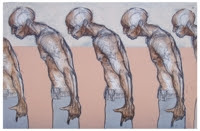I am an idealist and I believe in the inherent goodness found in everyone. We all want the world to be a better place. More kindness, more compassion, and less suffering. We may have different ideas on how to achieve these objectives but it is my belief that we all want the same things.
Politics have never been something that interests me nor have politicians ever held my respect. My lack of interest would never be classified as apathetic. I have always cared deeply about social issues and I am aware that, without government support, many issues cannot be adequately addressed. Over the past several years I have taken a more hands-on approach to politics as one of my mastery goals. I’ve educated myself and actively participated in elections to help facilitate the change I believe is needed. I have learned a few things on the way.
People care but don’t feel their vote really counts. Yes, they do understand that every vote counts but when their elected representative is expected to represent the wishes of his party leadership over the wishes of his constituents, our vote do not mean much. We basically have government without representation. People do care but until the politicians actually represent something worth voting for, people cannot be expected to believe their vote actually counts for anything,
What is the answer? I am not sure. I recognized long ago that most political parties are pretty much the same. They govern to meet their own needs and to placate those who put them in power but they do not really address the social issues that most of us care about. Their primary mandate is to keep the economy growing at its unsustainable rate and hope like heck the day of reckoning does not come during their watch. We’re all complicate in the cycle of indifference this creates with the voting public. As long as we’re feeding our family and the kids have the newest iPhones, we become quite complacent with how things are and accept a certain level of mediocrity.
Back in 2006 I made a huge mistake. I had the idea that if everyone held the current government accountable to keep the promises that got them elected, eventually the system would work the way it was designed. I voted for Stephen Harper, not because he promised change, but because he was change. I figured if he turned out to be like all the rest we could just vote him out and begin anew with another guy. Politicians, more than anyone else, know how their bread gets buttered. They will do whatever it takes to get elected and if telling the truth and keeping promises is what people want, they will adapt. On paper my idea is sound but what I did not factor in is the untold damage a person like Harper can do while he is in power. Nor did I expect it to be this difficult to get everyone on the same page to get him out of power.
Stephen Harper was change but not the change he promised nor was he the change we needed. The damage he has done to democracy in this country is so massive, it will not be fixed in my children’s children’s lifetime. Harper promised to reform the senate. Not only did he not reform it but the very senators he appointed are behind the scandal that promises to force the reforms he promised seven years ago. To add insult to injury, Harper is now blaming the opposition parties for the lack of senate reform despite his promise that if we gave him a majority government the opposition could not block him in any way. Well we gave him his majority and he is still claiming he is impotent.
Despite seven years of broken promises, despite running up the biggest deficit in Canadian history, Harper continues to enjoy the support he needs to hold on to power. I really thought the senate scandal would be enough to show people his true colours but now I am not so sure. Harper has continued to contradict himself week by week and has been proven to have been telling one lie after another but listening to people at the Conservative convention this weekend in Calgary gush about his integrity makes one wonder what someone has to do to get fired by that party.
Our parliamentary system is one of the most democratic on paper. In practice, it does not seem that way and under Harper it has become a virtual dictatorship that is going to be very difficult to usurp. Those who are turning a blind eye because they support Harper’s ideals will someday regret it when the next guy in power does not conform to their ideals but still enjoys the unbridled power that Harper has put in place for the ruling party. What goes around . . .
“Leaders must wake people out of inertia. They must get people excited about something they’ve never seen before, something thad does not yet exist.” - Rosabeth Moss Kanter (b.1943)




























